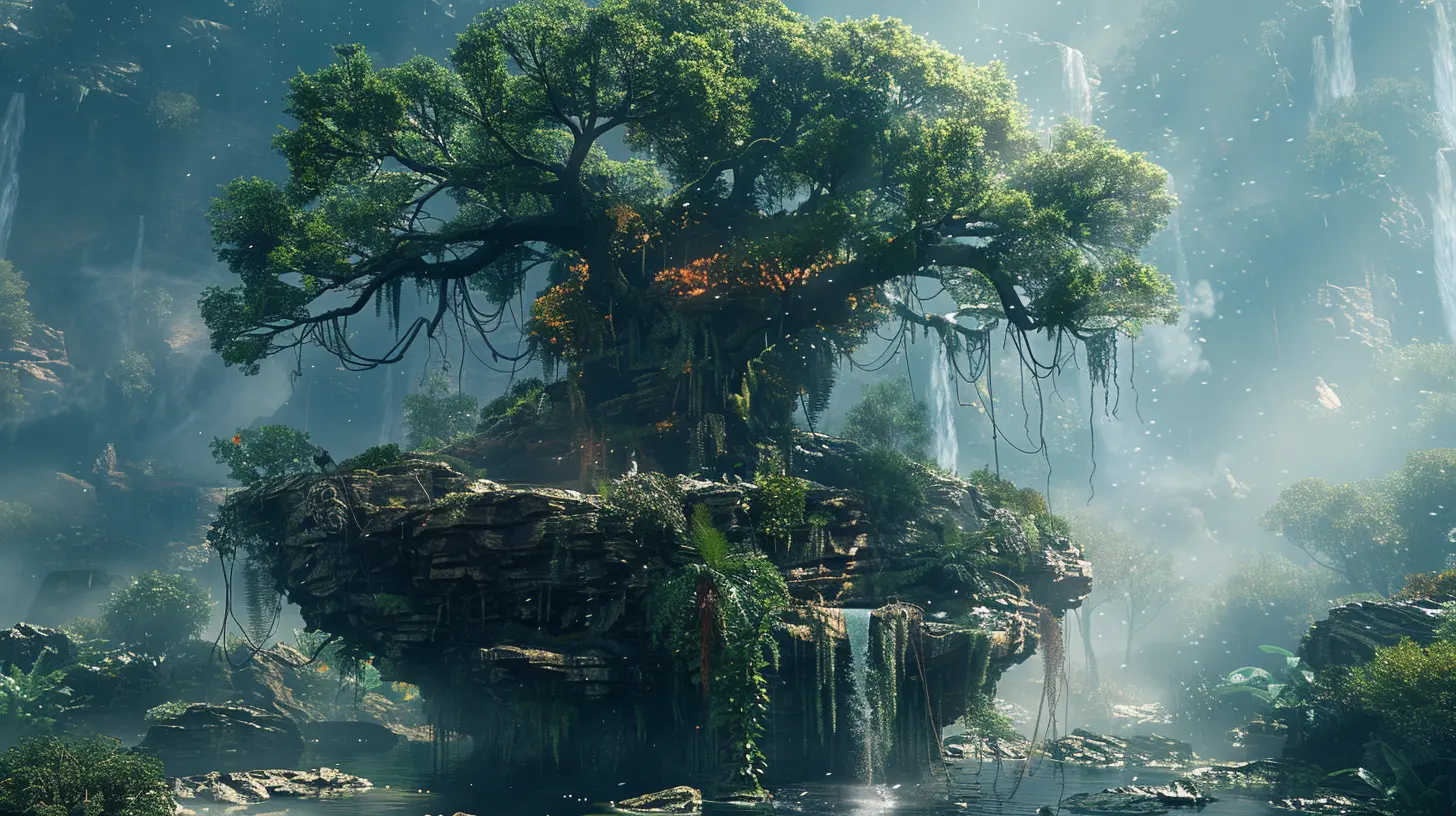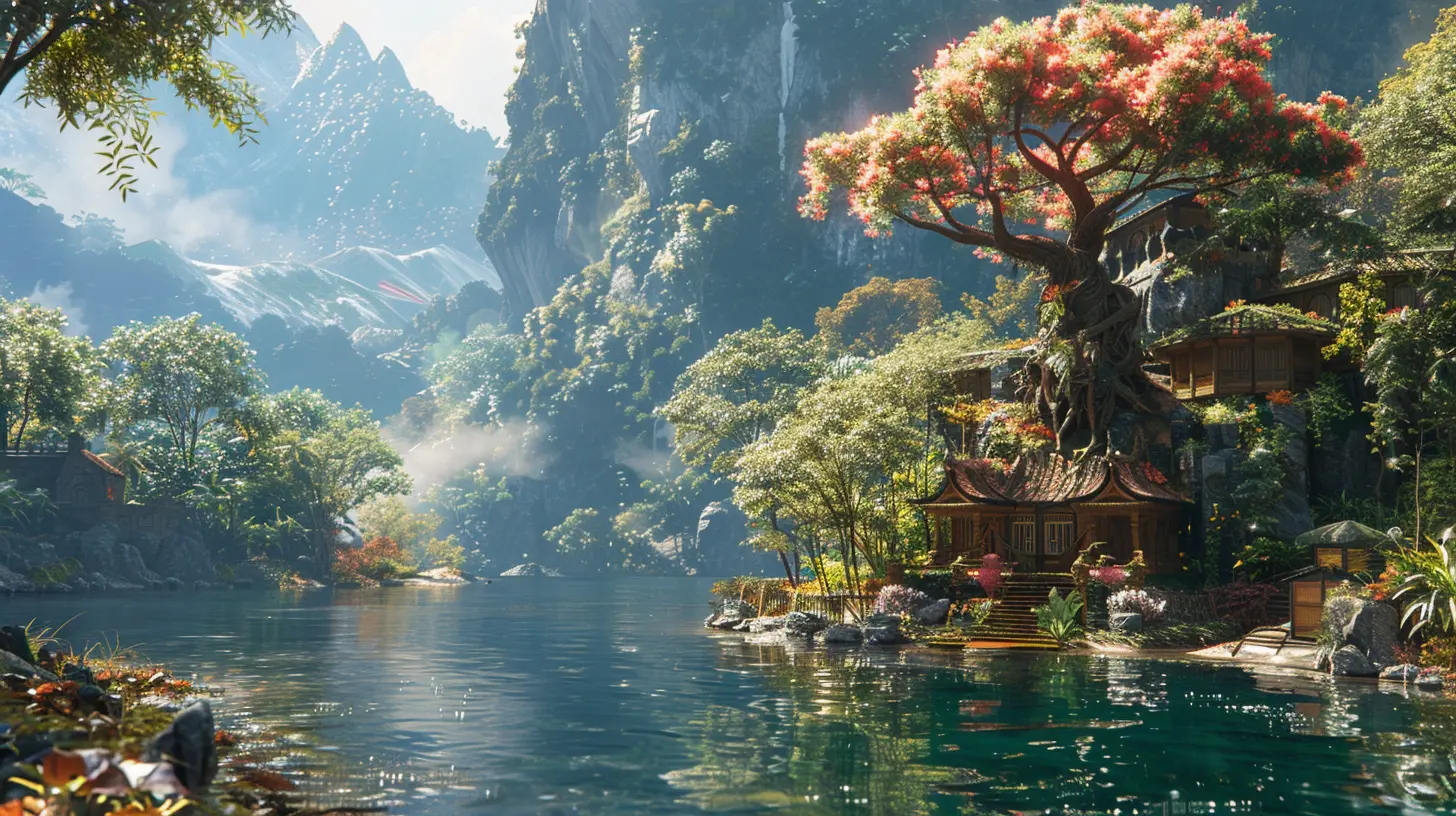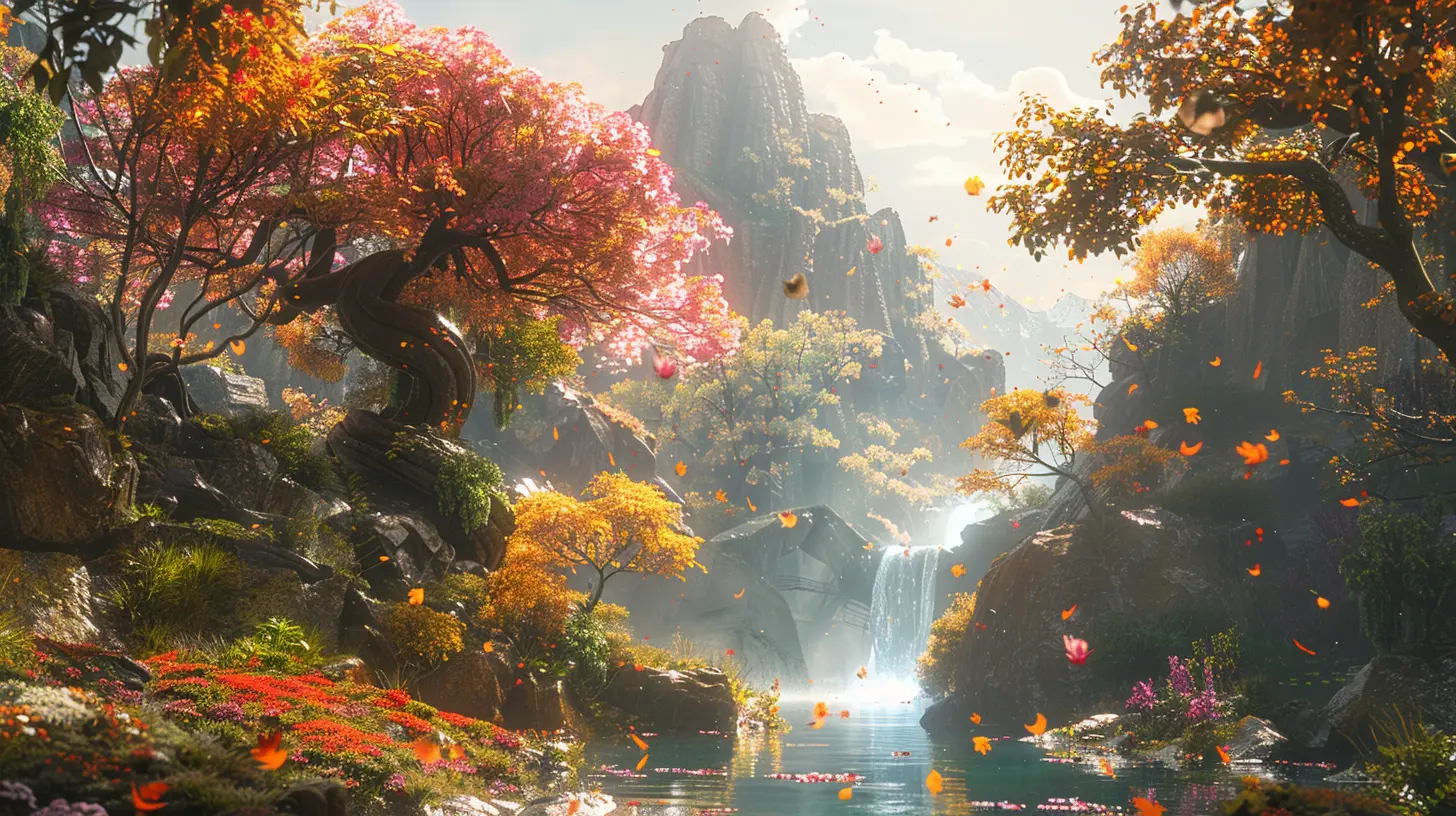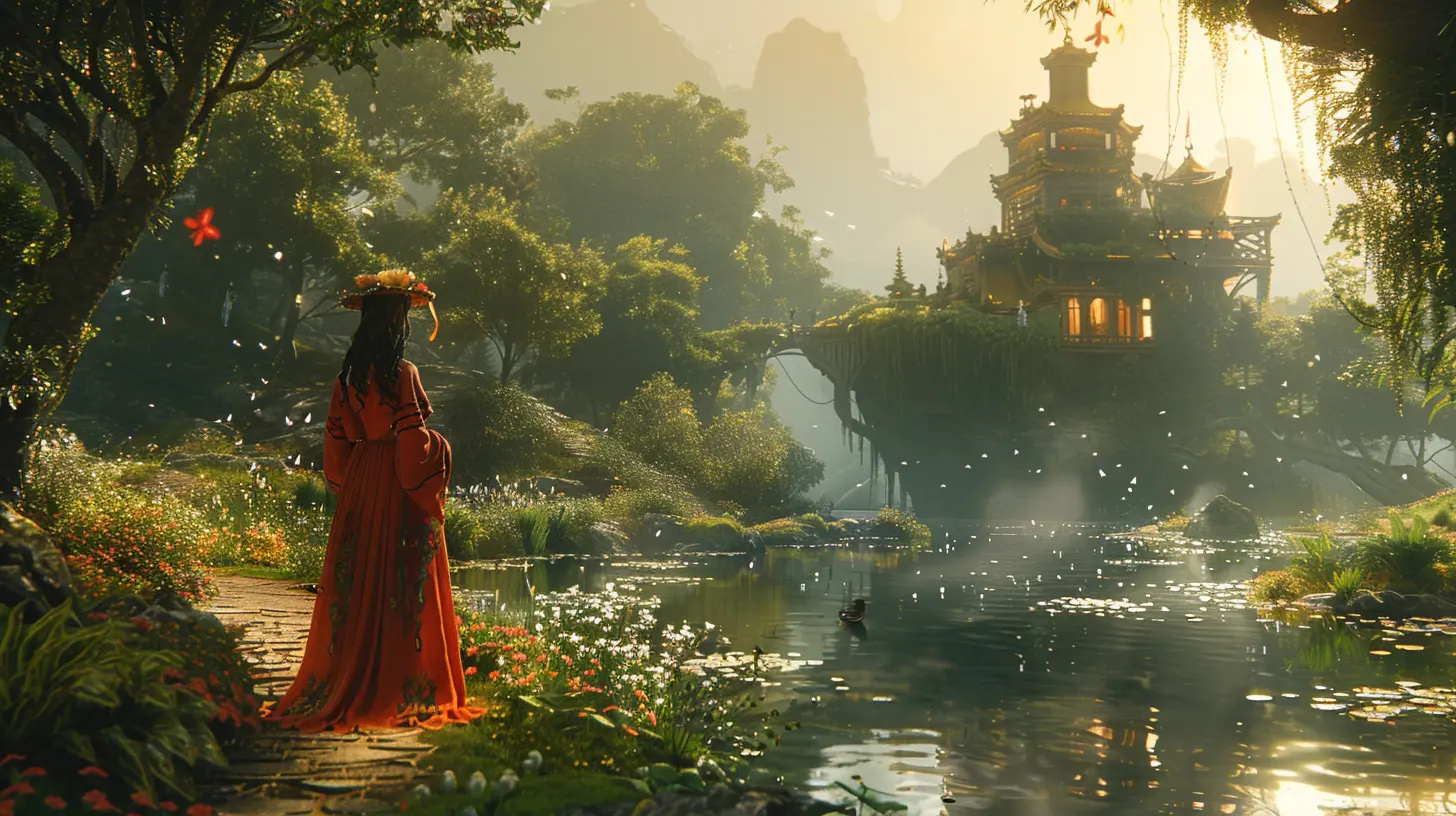How AAA Studios Balance Innovation and Familiarity
26 September 2025
The gaming world is a wild ride, right? One minute you’re exploring alien planets in a suit that probably costs more than your rent, and the next you’re sneaking through the shadows of a dystopian city. But have you ever stopped mid-game and thought—how do those massive AAA studios manage to keep things fresh while still giving us the stuff we know and love?
Let’s face it: we, as gamers, are a picky bunch. We want new experiences, yes, but not too new. We crave fresh mechanics, but if a game strays too far from what we’re used to, we’re the first to throw up our arms in confusion. That’s where the magic (and challenge) lies for AAA studios—they're constantly walking a creative tightrope between what’s innovative and what feels familiar.
So, how do they do it? How do these blockbuster game developers keep us coming back while still pushing the envelope? Grab your controller (or mouse and keyboard), and let’s dive in.
What Defines a AAA Game These Days?
Before we start dissecting the balancing act, let's clarify what we mean by "AAA" studios. Think of them like the Hollywood of gaming. They're big-budget, big-name developers like Ubisoft, Rockstar, Naughty Dog, and CD Projekt Red. They’ve got the cash, the talent, and the pressure to perform. Their games are expected to sell millions and break records—no pressure, right?But here's the catch: expectations are sky-high. Fans demand jaw-dropping visuals and buttery-smooth gameplay but also want something that feels cozy and familiar. It's like ordering a pizza and expecting it to taste like grandma’s home cooking and have truffle oil on top.
Why Familiarity Matters in Gaming
Let’s start on the warm and fuzzy side—familiarity.1. Players Crave Comfort
We’re creatures of habit. When you boot up a sequel like Assassin’s Creed Valhalla or the latest Call of Duty, there’s a comforting sense of “Ah, I know this.” Familiar control schemes, UI layouts, and gameplay loops help players dive right in without a steep learning curve.This sense of comfort is a powerful tool. It builds loyalty. It’s what makes fans line up (virtually or IRL) to buy the next entry in a beloved franchise.
2. It Sells—Big Time
Let’s be real. Studios are businesses. If something works, it’s gonna be reused—maybe with a few tweaks. Franchises rake in billions because they deliver what people expect, and there's a lot of money in that predictability.Heck, just look at FIFA, Madden, or even Pokémon. They've been sticking to a formula for years. Why? Because it sells like hotcakes.
But Wait—Why Innovation Is the Lifeblood of Gaming
Okay, so familiarity is cozy... but too much of it leads to boredom. Let’s flip the coin and see why innovation is equally crucial.1. Gamers Get Bored Fast
Gamers are hungry for newness. We want to be surprised, wowed, maybe even a little confused (in a good way). If every game feels the same, excitement dies. Fast.Innovation keeps the medium evolving. It’s how we went from pixelated plumbers to sprawling open worlds filled with AI-driven NPCs and branching narratives.
2. The Risk of Stagnation
When a studio leans too heavily on what’s worked before, it risks becoming irrelevant. Innovation keeps things fresh. It’s why people still rave about titles like The Legend of Zelda: Breath of the Wild or Elden Ring. They take risks and offer something new, even while honoring the DNA of their predecessors.
The Art of Balancing the Two
So how do AAA studios walk this tightrope? With a mix of strategy, feedback, and a touch of creative madness.1. Iterative Design – Building on a Strong Foundation
Rather than reinventing the wheel, many studios prefer to iterate. Think of God of War (2018). It kept the core of Kratos—rage, violence, a cool axe now—but added layers of emotional depth, revamped combat mechanics, and an over-the-shoulder camera to freshen things up.It was familiar—but oh man, it also felt totally new.
2. Borrowing from Indie Games
Here’s a little secret: big studios often look to indie games for fresh ideas. Why? Because indies can take big risks without corporate shareholders breathing down their necks. When those wild ideas work, AAA devs take notes.Case in point—Hades, an indie darling, shook up the roguelike genre, and suddenly everyone wanted a piece of that procedural, narrative pie.
3. Data-Driven Development
Studios track everything—from how long you play, to where you rage-quit, to which weapon you upgrade first. All that data helps them understand what players love and what needs fixing.The result? Games that keep the best parts of past titles while trimming the fat and adding just enough zing to keep things interesting.
4. Community Feedback
We’re living in the age of social media, Reddit threads, and YouTube rants. Studios listen (well, the smart ones do). Community feedback, early access programs, and public betas are gold mines for balancing innovation and familiarity.Take No Man’s Sky. It launched with big ideas but lacked a lot of the basics. Thanks to relentless updates and community feedback, it became a redemption arc for the ages.
Case Studies: Studios That Got the Balance Right
Let’s look at some real-world examples of AAA developers who struck that sweet spot.1. Rockstar Games – The Evolution of Red Dead
Red Dead Redemption 2 wasn’t just a cowboy simulator. It innovated with lifelike ecosystems, dynamic NPC behavior, and a cinematic storytelling approach—but it still kept enough of the familiar Grand Theft Auto DNA to make players feel at home.Rockstar didn’t abandon what worked. They refined it, layered it, and added a slice of western charm.
2. Naughty Dog – The Last of Us Series
Naughty Dog knows drama. With The Last of Us Part II, they doubled down on cinematic storytelling and emotional depth. Sure, it divided fans, but no one could say it wasn’t daring.They kept that gritty, stealth-survival gameplay we loved in the first game. But they pushed the narrative and moral complexity so far that we had to ask ourselves, "Wait... am I the bad guy?"
That’s innovation with purpose.
3. FromSoftware – Soulsborne Games
Ah, the kings of ‘tough love’. FromSoftware has a reputation for punishing gameplay. But with Elden Ring, they gave fans what they wanted—brutal combat and cryptic lore—while opening up the world like never before.The result? A game that felt like a Souls game but also felt like nothing else. Now that’s balance.
The Pitfalls of Getting It Wrong
We can't talk real talk without mentioning when things go sideways.When studios lean too far into innovation or too deep into familiarity, trouble can brew.
- Too Familiar: Ever felt like you’ve played the same Ubisoft game 10 times with different skins? Yeah. That’s what happens when innovation gets left behind.
- Too Innovative: On the flip side, games like Anthem tried to reinvent the wheel and kind of… forgot to include the car. Players were left confused and frustrated.
Striking the right balance is like cooking a dish with bold flavors. Too much spice? Overwhelming. Too little? Bland. You need just the right seasoning.
So, What’s Next for AAA Innovation?
We're living in a time where gaming is growing faster than ever. New tech—like AI-driven worlds, VR, and cloud gaming—are knocking on the door. But will these innovations feel natural or be the equivalent of pineapple on pizza? (Hey, no judgment.)Here’s what we’re likely to see:
- More hybrid genres – Games blending RPG, FPS, survival, and even puzzle elements.
- Dynamic storytelling – Where narratives change based on how you play, not just what you choose.
- Player-driven worlds – Expect AI that responds to your decisions in real-time, not just through scripted events.
And as always, the best AAA games will be the ones that wrap all that newness in a blanket of familiarity—like a revolutionary taco in a nostalgic tortilla.
Final Thoughts: The Sweet Spot is Gold
At the end of the day, balancing innovation and familiarity isn’t about choosing one over the other. It’s about weaving them together so seamlessly that players feel both the thrill of discovery and the comfort of recognition.When done right, it's magic. It's that moment when you're playing a game and think, “This feels just right.” Not too new to be alienating, not too familiar to be boring—just perfectly in tune with what you didn’t even know you wanted.
And that, my friends, is the AAA balancing act.
all images in this post were generated using AI tools
Category:
Aaa GamesAuthor:

Avril McDowney
Discussion
rate this article
1 comments
Marley McLanahan
This article highlights a crucial tension in gaming; balancing the allure of new ideas with the comfort of familiar mechanics. It's a delicate dance that shapes player enjoyment and industry success.
September 29, 2025 at 4:45 PM

Avril McDowney
Thank you for your insightful comment! Balancing innovation and familiarity is indeed key to enhancing player experience and ensuring success in the industry.


